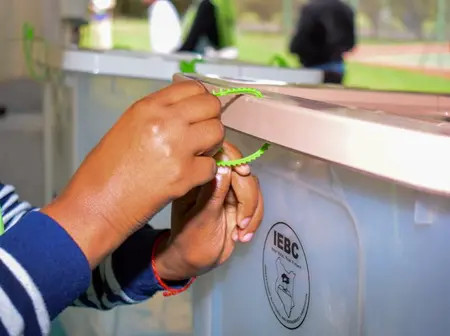Because of the uneven field that characterises politics in Kenya, it is difficult for women aspirants to seek elective positions meaningfully and consistently. The net effect of the bottlenecks they face is that there are fewer women in political positions than there ought to be.
However, this is not a curse that must hang around the neck of Kenyans forever. Political parties, if they chose to, can deliberately mainstream women and encourage them to vie at various levels. This is not only good for women but also for democracy because it increases diversity and engenders inclusion.
One of the big barriers that stops or discourages women from vying is the large sums of money one needs to conduct credible campaigns. To vie for an Member of Parliament’s seat in rural areas today, one needs a minimum of Sh30 million. The amount is higher in cosmopolitan areas.
Since it is difficult for women aspirants and candidates to raise such sums, many who would otherwise have thrown their hats into the ring fail to do so due to lack of financial muscle.
It is not surprising, therefore, that many of the women who seek elective seats are bankrolled either by men in positions of power and influence, or by donor agencies interested in gender mainstreaming.
The other hurdle women encounter is the violence that mars campaigns. In the age of Boda boda gangs, it has become easier for contestants to hire goons to disrupt rallies or engage in violence because they know they can be spirited away by motorcycle riders.
Besides the physical violence, women aspirants also contend with verbal abuses during rallies and online bullying by social media guns for hire, who now cost a dime a dozen. This skews the playing field, thus discouraging women from offering themselves where and when they would make the ideal candidates.
However, the biggest stumbling block to women participation in elective contests is failure by political parties to mainstream them and create an environment that encourages their involvement. Why, for instance, don’t political parties set aside seats for which they will nominate women to vie?
Why do they not support their candidates financially, yet they receive billions of shillings from the Registrar of Political Parties every year? Why not set aside a specific portion of that allocation to supporting participation of women in elective politics?
Remember that as it is, the National Assembly is unconstitutionally constituted because it falls short of the two-thirds gender rule by 56 members. Rather than nominate such a large number of women just to comply with the supreme law, it would be more prudent for parties to nominate women to seek seats, especially during by-elections, such as those coming up on November 27.
The Independent Electoral and Boundaries Commission in August announced that there will be six by-elections for Members of Parliament: Banissa, Kasipul, Magarini, Malava, Mbeere North and Ugunja. These are in addition to the by-elections for Members of County Assembly and one Senate seat. Both Senate and counties have complied with the gender rule, by the way.
Now that parties have started dishing out direct nominations for some of these vacant seats, one would expect that the major political parties would lead from the front in demonstrating their commitment to gender parity and fidelity to the Constitution by nominating women to these positions. So far, none has put their nomination certificates where their mouths are.
The United Opposition, which was first past the post, has for instance agreed in a boardroom deal that it will front a man, Newton Karish, for the Mbeere North seat. Chances are that President William Ruto’s United Democratic Party will also settle on a man. These two formations have a high probability of clinching the seat. As such, nominating a woman would have increased such a candidate’s chances of success.
One of the problems that afflicts parties is that they are controlled by brokers and “owners” who restrict access of opportunity for candidates.
This informal structure, which is more powerful and effective than the formal channels, is particularly skewed against women who, by nature of their gender, are disadvantaged when they seek to lobby these informal centres of power. This is an issue that both Martha Karua and Millie Odhiambo have raised in their books, Against the Tide and Rig or Be Rigged? respectively.
Says Odhiambo: “An important but unwritten rule is that each party has its owners and you need to know how to navigate around this concept. The party owners are not the party leaders. They are people who have temporarily abrogated to themselves perceived, imaginary or real powers and authority over the affairs of the party.”
How can women be assisted to find their way around such characters so that they can land nomination certificates? That is a question that political parties ought to confront before a litigious Kenyan decides to ask courts to dissolve the National Assembly on grounds that it does not comply with the constitutional requirement on gender.
mbugua@nairobilawmonthly.com

Leave a Reply